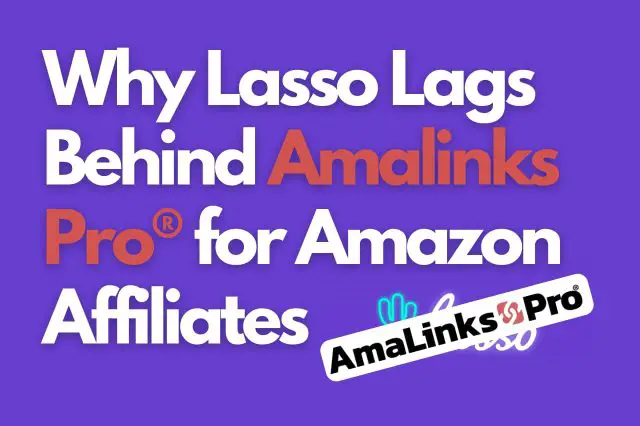Term:
FTC Affiliate Disclosure
Definition:
The term ‘FTC Affiliate Disclosure’ pertains to a set of guidelines mandated by the Federal Trade Commission (FTC) in the United States that necessitate transparency from influencers, bloggers, and others who engage in affiliate marketing. These guidelines intend to safeguard consumers by ensuring that they are cognizant of the advertising relationships that exist behind the endorsements or reviews presented by affiliates.
FTC Affiliate Disclosure is fundamentally about transparency and fairness in advertising. It stipulates that affiliates must openly disclose if they’re receiving compensation, typically monetary, for promoting a product or service. If a content creator posts a link to a product and earns a commission on sales generated through that link, they are obliged to disclose this information to their audience in a conspicuous manner. This disclosure allows consumers to make informed decisions, understanding the potential biases in the endorsements they encounter online.
The guidelines were first introduced in 2009, at a time when online advertising, especially through social media platforms and blogs, was burgeoning. As internet users increasingly turned to trusted online personalities for product recommendations, the FTC recognized the need to ensure that consumers were not misled by the content presented to them. The disclosure rules were established as a mechanism for preserving trust and transparency in online advertising.
It is imperative for affiliates to comprehend that the FTC Affiliate Disclosure requirements apply not solely to explicit product recommendations but also to any content that could be interpreted as endorsing a product or service. Even subtle product placements or implied endorsements fall within the jurisdiction of these rules, necessitating clear and unequivocal disclosures from the affiliates involved.
Compliance with FTC Affiliate Disclosure rules is not a mere formality; it carries legal weight. The FTC possesses the authority to enforce these guidelines and has, on multiple occasions, taken action against influencers and companies that have failed to adhere to the disclosure requirements. Non-compliance can result in substantial fines and other penalties, making it crucial for affiliates to familiarize themselves with and rigorously follow the disclosure rules.
The disclosure itself does not need to follow a specific script but must be clear and unambiguous. It should be easily noticeable by consumers, placed close to the endorsement or affiliate link, and written in plain language that is straightforward to understand. Variations in the form and content of the disclosure are permissible as long as the essential requirement of clear and conspicuous transparency is satisfied.
For instance, affiliates might use phrases like “sponsored”, “ad”, “affiliate link” or similar terminology to indicate that they have a financial relationship with the product or service being promoted. Simple, direct statements like “I get commissions for purchases made through links in this post” are also commonly used to satisfy disclosure requirements.
In the context of social media, where space is often limited, abbreviated disclosures like “#ad” or “#sponsored” are typically deemed acceptable by the FTC as long as they are prominently placed and easy for consumers to notice and understand. The crucial point is that the disclosure must be apparent to the average reader or viewer without necessitating extra effort to locate or interpret it.
FTC Affiliate Disclosure is not only a legal imperative but also a practice that fosters trustworthiness and credibility among content creators and their audiences. Transparent disclosures of advertising relationships help build confidence among consumers, which is beneficial for both the affiliates and the brands they promote.
Consumers who perceive that they are receiving honest and upfront information are more likely to trust the endorsements and recommendations they encounter. Consequently, while the FTC Affiliate Disclosure guidelines necessitate compliance, adhering to them also constitutes sound and ethical business practice.
There has been increased scrutiny and awareness regarding the significance of transparent advertising practices online. As consumers become more digitally savvy, they often seek out and expect clear disclosures of affiliate relationships. This evolving landscape makes it essential for content creators and affiliates to remain informed about the FTC guidelines and diligent in complying with them.
The FTC Affiliate Disclosure guidelines encapsulate the principle that advertising should be fair and transparent, with consumers having access to the information they require to make informed choices. The rules reflect an acknowledgment of the influential role that online endorsements and affiliate marketing play in contemporary consumer behavior and aim to ensure that this influence is wielded responsibly and ethically.
Related:

Miles Anthony Smith
Miles is a loving father of 3 adults, devoted husband of 24+ years, chief affiliate marketer at AmaLinks Pro®, author, entrepreneur, SEO consultant, keynote speaker, investor, & owner of businesses that generate affiliate + ad income (Loop King Laces, Why Stuff Sucks, & Kompelling Kars). He’s spent the past 3 decades growing revenues for other’s businesses as well as his own. Miles has an MBA from Oklahoma State and has been featured in Entrepreneur, the Brookings Institution, Wikipedia, GoDaddy, Search Engine Watch, Advertising Week, & Neil Patel.


